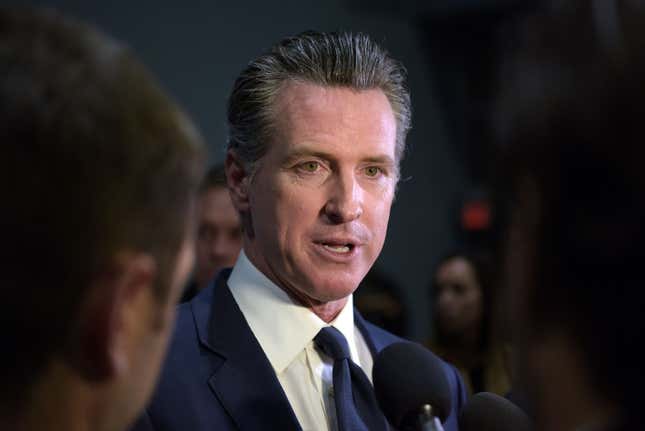
I’ve had a lot of conversations with Black people who have a bit of a defeatist attitude when it comes to the subject of reparations. For them, the very idea of America paying monetary damages or some form of restitution to the descendants of slaves—people the country oppressed, tortured, forced unpaid labor on, separated from their families and stripped of any connection to their African heritages for roughly 250 years—is so far fetched that it’s not even a demand worth fighting for. But in recent years—and especially with the current racial reckoning going on in the U.S.—the subject of reparations has become so mainstream that political candidates have even acknowledged the legitimacy of the idea in their platforms. Most recently in California, Gov. Gavin Newsom signed a law Wednesday that appoints a task force to come up with proposals for how the state could provide reparations to Black Americans.
From KRON 4:
The law creates a nine-member task force to come up with proposals for how the state could provide reparations to Black Americans, what form those reparations might take and who would be eligible to receive them.
The reparations would not be limited to slavery, but the law requires the task force to give special consideration for Black people who are descendants of slaves. The task force’s recommendations would not be binding. The task force must give a report to the state Legislature one year after its first meeting.
“This is not just about California, this is about making an impact, and a dent, across the rest of the country,” Newsom said moments after signing the bill during a ceremony broadcast on his YouTube channel.
KRON noted that California never had a form of slavery sanctioned by law, but slave owners were allowed to bring their victims of slavery to the state, which even passed a law making it legal to arrest runaway slaves and return them to their owners.
In fact, according to USA Today, “while California’s constitution stated that ‘neither slavery nor involuntary servitude, unless for punishment of a crime, shall ever be tolerated,’ archives suggest that slavery was a common practice in the state in the 19th century.”
According to Deadline, Newsom pointed to the embarrassing, circus-like display of white-on-white-crime that was the first presidential debate between Joe Biden and Donald Trump on Tuesday night as a reason that his bill, Assembly Bill 3121, needed to be signed.
“After watching last night’s debate, this signing can’t come too soon,” Newsom said.
It’s important to note that the bill doesn’t outline any specific plan for reparations distribution, and nothing the task force comes up with will be immediately set in stone. Bill 3121 is basically just a pretty major step in the right direction.
Deadline reports that Newsom also signed into law Assembly Bill 979, which requires California-based corporations “to have at least one director from an underrepresented community by the close of 2021.”

